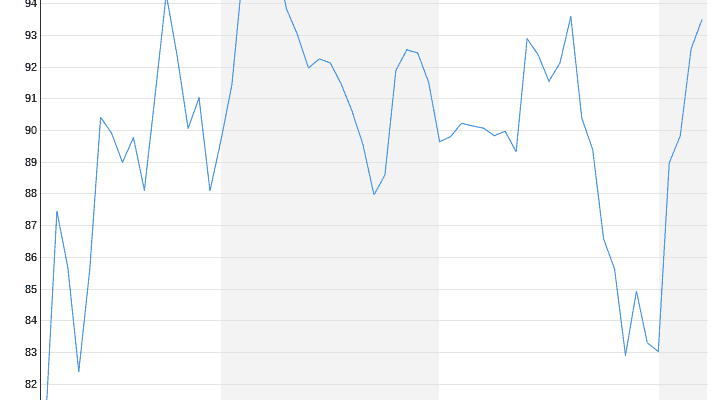Sunday, February 07, 2021
Corona halves sales
Aviation suppliers are fighting against decline
The supplier industry in the aviation industry, which has been badly hit by the corona pandemic, is looking increasingly worried about the future. 2020 turned out to be even worse than feared. The pre-crisis level is unlikely to be reached again for years. Survival strategies are needed.
There is no improvement in sight for the time being – on the contrary: The situation at suppliers in the aviation industry is developing worse than feared in the Corona crisis. Experts initially assumed a pandemic-related decline in sales in the industry of 40 percent for 2020, but ultimately even a minus of 45 percent. And the situation is bleak for this year too. In the meantime, despite a slight decline in corona numbers and progress in vaccinations, a 33 percent decline in sales compared to 2019 is expected, says the managing director of the Hanse-Aerospace industry association, Sebastian Corth. "In the spring, this value was 29 percent." Before 2024, the pre-crisis level will hardly be reached again.
The Hamburg Aviation Association sees the situation in the Hamburg metropolitan region as the world's third largest location for the civil aviation industry – after Seattle with Boeing and Toulouse with Airbus. "Unfortunately, there has been no real improvement in the situation since autumn," says spokesman Lukas Kaestner. The company-wide production of the aircraft in the Airbus A320 family has leveled off at 40 aircraft per month. However, that is far from the around 70 machines per month planned in March 2020, which the suppliers had prepared for with investments in their companies.
Starting up production will be difficult
"The suppliers will no longer get the investment costs amortized in the foreseeable future," says Kaestner. In addition, stocks are being rebuilt in order to be able to deliver in the event of a short-term increase in production. "The suppliers have to make advance payments for this, which in the current tense situation is a further burden on the company," says Kaestner.
It looks even worse in the long-haul aircraft segment, the success of which is directly linked to the global progress in corona vaccinations and the lifting of travel restrictions. Airbus had already throttled production of the A330neo of the A350 in spring 2020, the A380 will expire this year. Boeing, in turn, has postponed the first delivery of its new "flagship", the 777X, from 2021 to the end of 2024. "This also applies to German suppliers who are working for Boeing or Lufthansa as one of the model's first customers," says Kaestner.
Before the outbreak of the corona pandemic, however, the aerospace industry in Hamburg was still doing really well. More than 41,000 people work at Airbus, Lufthansa Technik and at the airport as well as a network of around 300 supplier companies. They generated an annual turnover of more than five billion euros. According to a survey of works councils on behalf of IG Metall, the number of employees recorded in the north rose by more than eleven percent between 2017 and 2019. The average occupancy rate up to 2021 was given at 90 percent, and every second company reported problems with the search for employees.
But then came the corona pandemic and aviation experienced an unprecedented decline. Airbus alone announced that it would cut 15,000 of the around 90,000 jobs in the commercial aircraft division worldwide, around 3000 of them in northern Germany. According to a nationwide study by h & z Unternehmensberatung AG together with the Federal Association of the German Aerospace Industry from mid-January, almost two thirds (63 percent) of civilian suppliers are directly and immediately affected by the pandemic. 61 percent assessed their situation in December as worse or even much worse than six months earlier.
IG Metall: 10,000 jobs at risk
"We are very concerned about the situation with the aviation suppliers," says Daniel Friedrich, IG Metall coast district manager. It is often small and medium-sized companies that have less strength to weather the crisis. According to the latest survey by IG Metall among works councils from mid-December, employee representatives see around 10,000 jobs at risk, around 6,300 of them in northern Germany. Both Corth from the Hanse-Aerospace industry association and Kaestner from the Hamburg Aviation association are currently not seeing any extensive job cuts or many bankruptcies among suppliers, but that is not a reason to give the all-clear, says Kaestner with a view to the downsizing in other countries such as Great Britain and the United Kingdom USA.
"The companies have somehow set themselves up through short-time work, loan programs and one or the other state support," says Corth, describing the situation. More and more companies were also bringing in investors at the expense of independence or entering into strategic alliances. Aviation suppliers are also increasingly trying to gain a foothold in other industries such as automotive or medical technology, says Kaestner. "This applies in particular to the engineering service provider segment, whose order situation in the aviation sector has almost imploded since the beginning of the crisis and for which there is no improvement in sight in the medium term."
Even if Corth and Kaestner praise Hamburg's red-green Senate for the Aviation Task Force, IG Metall believes that government support must focus on the industry. And "Airbus is also responsible for stabilizing its suppliers," emphasizes Friedrich – although Airbus in Hamburg-Finkenwerder has another problem: Because of 21 corona cases, including seven of the British variant, the aircraft manufacturers had to quarantine 500 employees and close one A320 final assembly line for the time being.
. (tagsToTranslate) Economy (t) Aviation (t) Corona crisis (t) Sales forecast (t) IG Metall (t) Airbus Group
